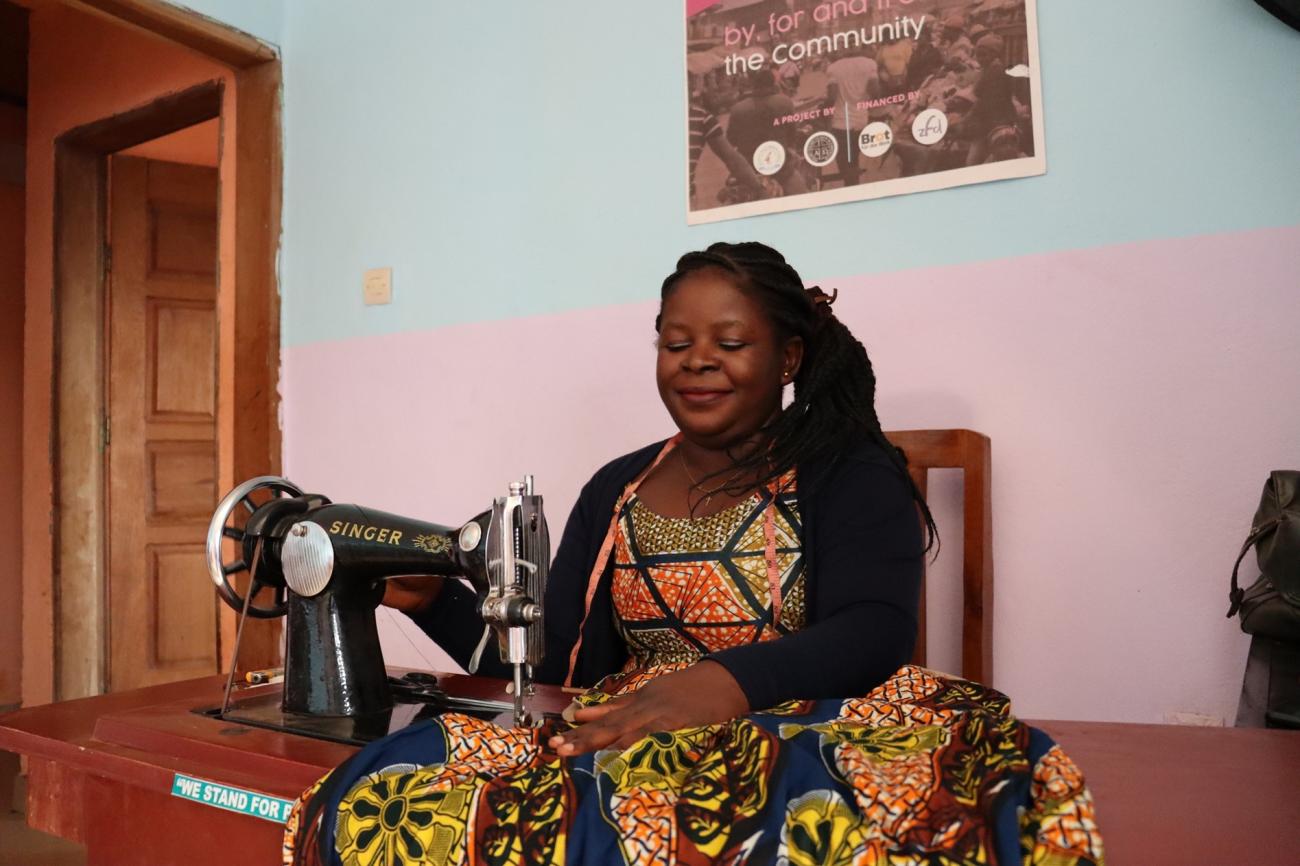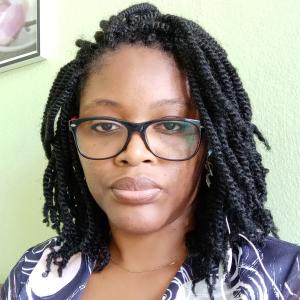As of February 2021, the crisis has caused the displacement of an estimated 712,644 people. As the crisis deepens, more people are leaving insecure rural and bush areas to nearby bushes or safer areas in the two regions, elsewhere in the country or to Nigeria.
The North-West and South-West crisis has also forced 301,651 people to abandon their property and belongings and seek safety in the Littoral, West, Adamawa and Centre regions. Many need assistance with shelter, access to water, hygiene and sanitation, education, and health services.
Nkourap, a small village in the West region, is hosting over 170 IDPs. Although the community has given them land to build their shelters and farm, they are living in poor conditions, with no access to drinking water and education. They also have limited access to sanitation, health, and protection.
Yaouba and his family are living in the IDP site since 2019. Before fleeing insecurity in his town and seeking refuge in the IDP site, he used to be a house builder in Ntaba village in the North-West region.
The fighting started in Bamenda and very quickly arrived in our village,” narrated Yaouba. “Due to the armed confrontations and the subsequent retaliations on Fulani Mbororos, I had no choice but to run away to save our lives,” he added. He used to travel from place to place, looking for construction work to support his family
Caught in a spiral of fear, a large part of the population of Ntaba village fled, abandoning their activities which before the crisis were prosperous. Many properties were burnt down, leaving them no choice but to flee. When some of them arrived in Nkourap in 2019, the Rural Youth Development Council (RYDEC) organization provided food assistance to IDPs. The last food distribution took place in October 2020. Strategic Humanitarian Services (SHUMAS) also built latrines and provided livelihood support. The two organizations lack funds to continue providing assistance.
In Koutaba town, also in the West region, 27-year-old Lima[1] and her four children found shelter in the local community. A local family secured a room where she can stay with her children.
Lima and her husband decided to flee from Batibo town in the North-West region, for fear of violence. “As we were travelling to Bafoussam in the West region, members of an armed group caught us in the bush. They took our money and kidnapped all the men in the bus,” explained Lima. “it has been one month I have no news from my husband,” she added. She then took the children to Koutaba where she heard about a community hosting IDPs. “My children miss going to school. When we decided to flee from Batibo, we were hoping for a better future for our children. Now everything is uncertain for us. All that is important is our survival.” Although education is free for IDPs in public schools, distances between Lima’s house and the public school make it challenging for the children to go to school by foot. They need transportation support. Upon her arrival in Koutaba, she received food and non-food items from Tomorrow Children, an NGO which supports IDPs in Koutaba town.
[1] Name was changed for protection reasons






